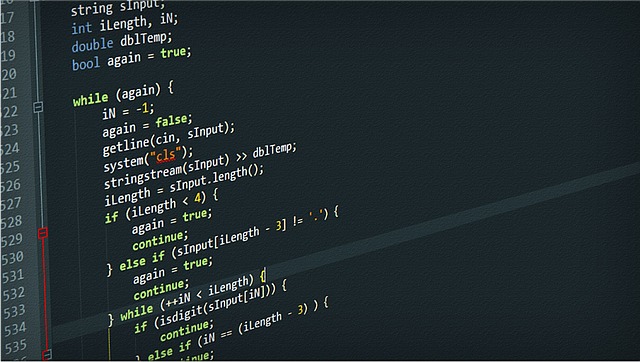C programming provides a wide range of functions that perform various tasks and operations. Some of the most commonly used functions in the c program compiler include:
Mathematical Functions:
C provides several mathematical functions, such as sin(), cos(), tan(), log(), sqrt(), etc., that perform various mathematical operations.
Mathematical functions in C programming are used to perform various mathematical operations and calculations. Some common uses of mathematical functions in C programming include:
- Trigonometric Functions: Trigonometric functions, such as sin(), cos(), and tan(), are commonly used to perform trigonometric calculations in C programming. These functions can be used to perform calculations related to angles, radians, and the relationships between different trigonometric functions.
- Logarithmic Functions: Logarithmic functions, such as log(), log10(), and exp(), are used to perform logarithmic and exponential calculations in C programming. These functions can be used to calculate logarithms, exponents, and other mathematical operations that involve logarithms or exponents.
- Power and Root Functions: Power and root functions, such as pow() and sqrt(), are used to perform calculations involving powers and roots in the c program compiler. These functions can be used to perform operations such as exponentiation and finding square roots.
Input/Output Functions:
C provides several input/output functions, such as scanf(), printf(), gets(), puts(), etc., that are used to read input from the user or write output to the screen.
Input/Output (I/O) functions in C programming are used to read data from input sources and write data to output destinations. Some common uses of I/O functions in C programming include:
- Reading Input from the User: C programming provides several I/O functions, such as scanf() and gets(), that are used to read input from the user. These functions are commonly used in interactive programs and applications that require user input.
- Writing Output to the Screen: C programming provides several I/O functions, such as printf() and puts(), that are used to write output to the screen. These functions are commonly used to display results, status updates, and other information to the user.
- Reading and Writing Data from Files: C programming provides several I/O functions, such as fopen(), fclose(), fread(), and fwrite(), that are used to perform file I/O operations. These functions are commonly used to read and write data from and to files, respectively.
Character Functions:
C provides several character functions, such as isalpha(), isdigit(), toupper(), tolower(), etc., that perform various operations on characters. Character functions in C programming are used to perform operations on characters and strings. Some common uses of character functions in C programming include:
- Character Classification: Character classification functions, such as isalpha(), isdigit(), and isspace(), are used to determine the type of a character. These functions can be used to determine if a character is a letter, a digit, a white space character, and so on.
- Character Conversion: Character conversion functions, such as toupper() and tolower(), are used to convert characters from one case to another. These functions can be used to convert characters from lowercase to uppercase or vice versa.
- String Manipulation: String manipulation functions, such as strlen(), strcpy(), and strcat(), nested functions in c are used to manipulate strings in C programming. These functions can be used to perform operations such as finding the length of a string, copying strings, concatenating strings, and so on.
String Functions:
C provides several string functions, such as strlen(), strcat(), strcmp(), strcpy(), etc., that perform various operations on strings. String functions in C programming are used to perform operations on strings. Some common uses of string functions in C programming include:
- String Length: String length functions, such as strlen(), are used to determine the length of a string. These functions are commonly used to determine the size of a string in order to allocate memory dynamically or to process strings in loops.
- String Copy: String copy functions, such as strcpy() and strncpy(), are used to copy strings from one location to another. These functions are commonly used to duplicate strings, either in their entirety or partially.
- String Concatenation: String concatenation functions, such as strcat() and strncat(), are used to concatenate two strings into a single string. These functions are commonly used to join two or more strings together to form a single string.
Memory Allocation Functions:
C provides several memory allocation functions, such as malloc(), calloc(), realloc(), etc., that are used to dynamically allocate memory. Memory allocation functions in C programming are used to dynamically allocate memory at runtime. Some common uses of memory allocation functions in C programming include:
- Dynamic Data Structures: Memory allocation functions are commonly used to create dynamic data structures, such as linked lists and trees, which require memory to be dynamically allocated as the data structure grows or shrinks.
- Dynamic Arrays: Memory allocation functions, such as malloc() and calloc(), are commonly used to create dynamic arrays, which can grow or shrink at runtime based on the needs of the program.
- Buffer Management: Memory allocation functions, such as malloc() and calloc(), are commonly used to manage buffers, such as input and output buffers, which need to be dynamically allocated based on the size of the data being processed.
File Input/Output Functions:
C provides several file input/output functions, such as fopen(), fclose(), fread(), fwrite(), etc., that are used to perform file operations. ile Input/Output (I/O) functions in C programming are used to read from and write to files on a disk. Some common uses of file I/O functions in C programming include:
- Data Storage: File I/O functions are commonly used to store data in a file on a disk. This data can be retrieved and processed later, allowing for the persistence of data across program executions.
- Data Backup: File I/O functions can be used to make backups of data by writing data to a file. And then copy the file to a different location. This allows for the preservation of data in case of data loss or corruption.
- Data Processing: File I/O functions can be used to process data stored in a file. For example, data can be read from a file, processed, and then written to a different file.
Time and Date Functions:
C provides several time and date functions, such as time(), clock(), localtime(), etc., that are used to perform operations related to time and date.
Dynamic Linking Functions:
C provides several dynamic linking functions, such as dlopen(), dlsym(), etc., that are used to perform dynamic linking.
These are just a few examples of the many functions available in C programming including nested functions in c. The standard library of C programming provides a large collection of functions that perform various tasks and operations. And developers can also write their own custom functions to perform specific tasks.
Related Post:
C Sharp Assignment Help Gives You The Best Solutions For Any Assignment.







